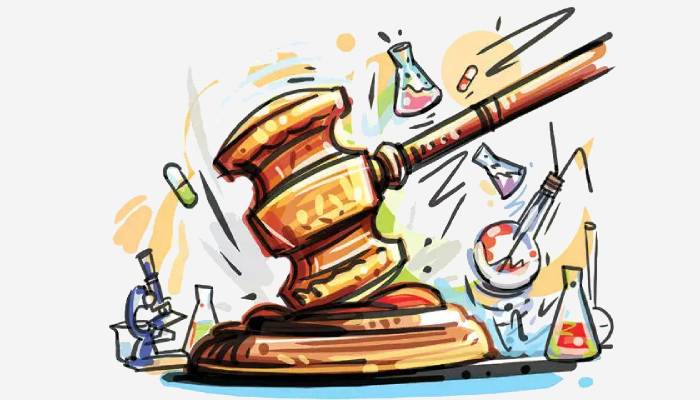
or

The Supreme Court of India recently heard a crucial matter regarding the uniformity of pay conditions and pensions for judges across different states. The case delves into whether judges should receive a fixed pension and have standard pay structures nationwide, with considerations of the National Pension Scheme (NPS). The issue has sparked debate over disparities in judicial remuneration, with certain states offering more lucrative packages than others. The petitioners argue that uniformity in pay would ensure equitable treatment for judges and strengthen the judicial system. Additionally, discussions around applying the NPS to judges have raised concerns over its impact on their retirement benefits. The Court’s ruling on this matter could set a precedent for the future of judicial compensation and retirement benefits in India.
The Supreme Court of India recently addressed a Public Interest Litigation (PIL) alleging that multinational pharmaceutical companies conduct clinical drug trials in economically disadvantaged countries, exploiting vulnerable populations. The petitioners highlighted how such trials, often conducted under the guise of medical research, raise ethical concerns, especially in impoverished regions. The Court acknowledged the gravity of the matter and questioned the companies’ practices, considering the potential violations of human rights and exploitation of poverty-stricken communities. This case also draws parallels to the Bhopal Gas Tragedy, where similar exploitation led to widespread harm. The Court has called for a detailed examination of the practices of multinational pharmaceutical companies in India, which could pave the way for stricter regulations on clinical trials.
The Supreme Court of India recently reserved its judgment on whether the Central Bureau of Investigation (CBI) can investigate fraud in a company when the Serious Fraud Investigation Office (SFIO) is already conducting an inquiry. The case arises from allegations of financial misconduct in a corporate entity, with the SFIO already tasked with investigating the matter. The petitioners argue that allowing both agencies to probe simultaneously could lead to overlapping investigations, complicating the legal process. On the other hand, the respondents maintain that the CBI’s involvement is crucial, especially in cases where swift action is required. The Court’s judgment on this matter will clarify the jurisdictional scope of these two investigative bodies in corporate fraud cases.
In a significant development, the Supreme Court of India has directed the Securities and Exchange Board of India (SEBI) to scrutinize the Sahara Group’s proposed joint venture (JV) agreement for the development of land in Versova, Mumbai. This case is a continuation of the ongoing legal battle between SEBI and the Sahara Group, which has faced multiple regulatory challenges. The Court’s directive underscores the importance of regulatory oversight to ensure that any proposed agreements comply with legal and financial norms. SEBI has been asked to examine the terms of the JV agreement carefully, ensuring that it adheres to the law and protects the interests of investors. This ruling could have wider implications for the Sahara Group’s operations.
The Supreme Court of India has directed the Union Government to implement a cashless treatment scheme for road accident victims during the critical ‘Golden Hour’ period, by March 14. This directive comes as part of the Court’s efforts to improve the response to road accidents, where timely medical intervention can save lives. The ‘Golden Hour’ refers to the first hour following a traumatic injury, when prompt medical care is most effective. The Court emphasized the importance of providing immediate medical treatment without financial barriers, ensuring that victims receive essential care irrespective of their ability to pay. The ruling is expected to significantly improve the outcomes for road accident victims across India.
The LW Bureau is a seasoned mix of legal correspondents, authors and analysts who bring together a very well researched set of articles for your mighty readership. These articles are not necessarily the views of the Bureau itself but prove to be thought provoking and lead to discussions amongst all of us. Have an interesting read through.

Lex Witness Bureau

Lex Witness Bureau

For over 10 years, since its inception in 2009 as a monthly, Lex Witness has become India’s most credible platform for the legal luminaries to opine, comment and share their views. more...
Connect Us:


The Grand Masters - A Corporate Counsel Legal Best Practices Summit Series
www.grandmasters.in | 8 Years & Counting
The Real Estate & Construction Legal Summit
www.rcls.in | 8 Years & Counting
The Information Technology Legal Summit
www.itlegalsummit.com | 8 Years & Counting
The Banking & Finance Legal Summit
www.bfls.in | 8 Years & Counting
The Media, Advertising and Entertainment Legal Summit
www.maels.in | 8 Years & Counting
The Pharma Legal & Compliance Summit
www.plcs.co.in | 8 Years & Counting
We at Lex Witness strategically assist firms in reaching out to the relevant audience sets through various knowledge sharing initiatives. Here are some more info decks for you to know us better.
Copyright © 2020 Lex Witness - India's 1st Magazine on Legal & Corporate Affairs Rights of Admission Reserved